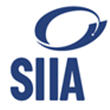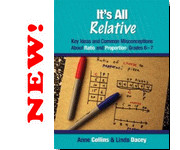NCTM: Revised SAT will give "more realistic view" of students' math skills Revisions to the SAT effective spring 2016 will give educators a "more realistic view" of students' math skills, according to Linda Gojak, president of the National Council of Teachers of Mathematics. "Rather than a lot of topics that cover a wide variety of things, it appears that what they've done is really look at the topics that prepare kids not only for college ... but also beyond college in mathematics that's really important, no matter what they're going to do," Gojak said. U.S. News & World Report (3/10) Mo. school helps boost math engagement through competition A school district in Missouri is sending 23 students to their first regional math competition, where the students will test their geometry and algebra skills. Teacher Cindy Roberts said entering the contest was a way to boost student engagement in math. "It's a great opportunity for those students who are doing very well in math and enjoy it to give them that extra boost and other challenges or responsibilities to excel in math," Roberts said. KTVO-TV (Kirksville, Mo.) (3/11) Other News  | Benchmark your higher education institution with the SIIA Vision K20 Survey!
For the 7th year, educators, administrators and faculty members from K-12 and postsecondary educational institutions have the opportunity to take a short, online survey to evaluate their current use of technology. Take the Vision K20 survey to evaluate current implementation of technology and also contribute to the development of a collaborative vision for the future. |
 | Md. district to pilot personalized learning in 6 schools A Maryland school district is looking to establish a group of six schools, which will develop instruction plans focused on personalized learning for students. Initial plans call for a learning environment in which students are free to choose how to demonstrate what they have learned and "real-time feedback" gives teachers information on student learning. Schools will be asked to apply to become one of the six pilots. The Gazette (Gaithersburg, Md.) (3/12)  | Try Lexia Reading Core5 FREE!
Designed specifically to meet the Common Core State Standards, Lexia Reading Core5™ provides personalized learning on foundational reading skills for students of all abilities in grades pre—K-5 and delivers norm-referenced performance data without interrupting the flow of instruction to administer a test. Try it for FREE now. |
 | Fla. district expands common core beyond language arts, math A Florida school district has trained art, music, physical education and drama teachers on the Common Core State Standards. The standards, which lay out expectations for language arts and math, are being used in non-core classrooms, such as that of Nicole Carpenter, who teaches high-school photography, drawing and other arts courses. Carpenter said she is now using more "common core" words, such as "evidence," with students and allotting more time for classroom discussions. The Tampa Tribune (Fla.) (3/9)  |
All middle-grades math teachers should have It's All Relative at their fingertips during planning and instruction. This handy 98-page flipchart is designed to engage students and develop deep conceptual understandings while correcting common misconceptions. 30 modules focus on key standards with instructional strategies, activities, and reproducibles. Download 3 free lessons! |
 | Texas schools seek ways to meet graphing-calculator mandate School districts in Texas will need to provide graphing calculators to all eighth-graders by next year's round of standardized assessments. Some school leaders have said the devices, which cost about $100 each, could slow purchases of other technology as schools redirect funds to meet the graphing-calculator mandate. Some have suggested using a more affordable application available on tablet devices, but others say that option presents test security issues. Austin American-Statesman (Texas) (free content) (3/10) | Implementing CCSSM through problem solving The 38 problems and tasks for students in "Implementing the CCSSM through Problem Solving, Grades 3–5" are organized into the major areas of the common core for grades 3–5: operations and algebraic thinking, number and operations in base ten, fractions, measurements and data, and geometry. For each task, teachers will find a rich, engaging problem or set of problems to use as a lesson starting point, with accompanying discussions that tie the tasks to specific common core domains and clusters. Follow-up sections highlight the CCSS Standards for Mathematical Practice that students will engage in as they work on these problems.
Assessment to enhance learning and teaching NCTM's Annual Perspectives in Mathematics Education replaces the NCTM Yearbooks. The second APME volume, "Assessment to Enhance Learning and Teaching," will focus on the important role that assessment plays in informing teacher practice and encouraging student learning. The deadline is May 15. Submission details. |  | He who stops being better stops being good." -- Oliver Cromwell, British military leader | | | | NCTM SmartBrief aggregates published news and editorial content from diverse sources. The content of NCTM SmartBrief does not necessarily reflect the positions of NCTM or the views of its leadership, and the viewpoints expressed or implied should not be interpreted as official NCTM positions. | Please contact one of our specialists for advertising opportunities, editorial inquiries, job placements, or any other questions.
| Mailing Address:
SmartBrief, Inc.®, 555 11th ST NW, Suite 600, Washington, DC 20004 | | |


No comments:
Post a Comment